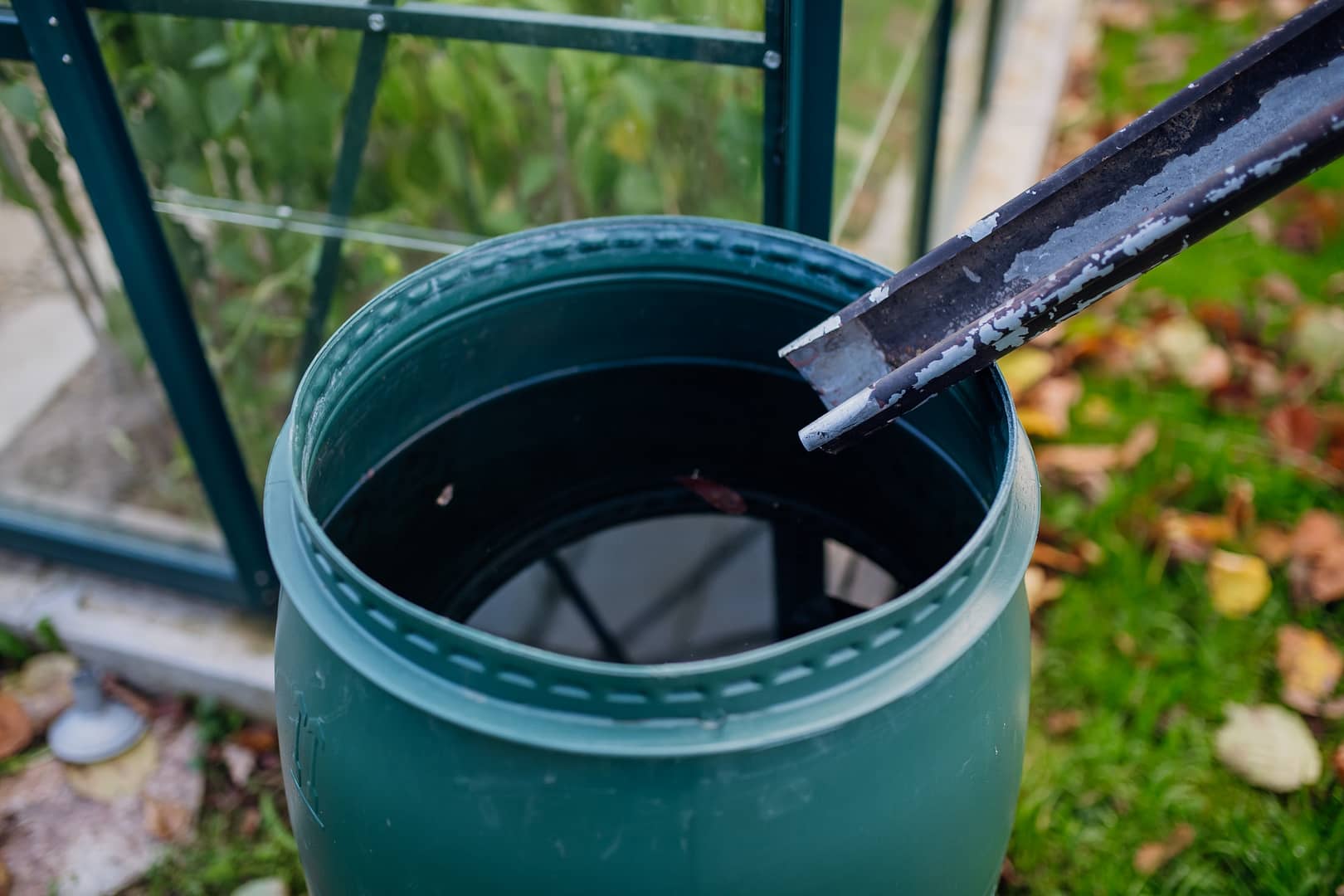Rainwater Harvesting in Dallas: A Homeowner's Guide
Wondering if rainwater harvesting can benefit your Dallas home? 'Rainwater Harvesting in Dallas: A Homeowner's Guide' has the answers you need.
This manual empowers you to implement rainwater harvesting systems, making you part of a community of environmentally-conscious homeowners.
It covers the legality of rainwater collection in Texas, the advantages for individuals and municipalities, guidelines for implementation, and important considerations.
By using this guide, you'll conserve water, reduce reliance on traditional sources, and protect the environment.
Are you ready to join the movement?
Key Takeaways
Looking to see if rainwater harvesting can benefit your Dallas home? "Rainwater Harvesting in Dallas: A Homeowner's Guide" has the information you need. This guide gives you the knowledge to set up rainwater harvesting systems, helping you become part of a community of environmentally-conscious homeowners. It covers the laws around rainwater collection in Texas, the benefits for individuals and communities, instructions for implementation, and important factors to consider. By using this guide, you can save water, decrease dependence on traditional sources, and help the environment. Ready to join the movement?
Legal Considerations for Rainwater Harvesting in Dallas
When considering rainwater harvesting in Dallas, it's important to review the city's by-laws and guidelines to ensure compliance with legal requirements.
Dallas actively promotes rainwater harvesting as part of its water conservation efforts, aligning with the Texas Water Development Board's initiatives. Understanding the city's regulations regarding storm water management and water conservation is crucial for homeowners.
Dallas may have specific guidelines on the type and size of rainwater collection systems allowed, so it's essential to be well-informed. By familiarizing yourself with the legal aspects, you can ensure that your rainwater harvesting setup meets all necessary requirements. This not only keeps you on the right side of the law but also contributes to the city's broader efforts in water conservation.
Moving forward, let's explore rainwater collection systems in more detail.
Understanding Rainwater Collection Systems
Understanding rainwater collection systems involves familiarizing yourself with the different components and setup options available for your home in Dallas. The first step is to grasp the key elements of a rainwater collection system:
- Catchment Surface: This is where rainwater is collected, such as your roof.
- Conveyance System: This includes gutters, downspouts, and pipes that transport rainwater from the catchment surface to the storage tank.
- Storage Tank: This is where the collected rainwater is stored for later use.
Understanding these components will help you make informed decisions about the best system for your home.
Moving on to the subsequent section about the benefits of rainwater harvesting for homeowners, let's explore how these systems can positively impact your household.
Benefits of Rainwater Harvesting for Homeowners
Rainwater harvesting offers a way to cut down on water expenses and garden sustainably. By collecting rainwater, you can rely less on city water and save money over time. This not only helps your finances but also supports environmental responsibility and water conservation.
Additionally, it allows for sustainable gardening practices, reducing the environmental impact of traditional water sources. Utilizing rainwater for gardening can lead to healthier plants and a reduced need for chemical additives, benefiting both the environment and your home garden.
Lower Water Bills
Saving on water bills is possible by collecting and using rainwater for your household needs. This not only reduces costs but also lessens reliance on traditional water sources. Additionally, it helps lower your environmental impact and promotes sustainable practices within your community.
Rainwater harvesting provides several benefits for homeowners, such as being a cost-effective alternative to municipal water, reducing water consumption, and serving as a backup water source during drought periods. By incorporating rainwater harvesting into your home, you take a significant step towards self-sufficiency in water supply and contribute to the well-being of your community.
This practice also opens up opportunities for exploring sustainable gardening options.
Sustainable Gardening Option
When it comes to gardening in Dallas, where the summers can be tough, utilizing rainwater harvesting is a sustainable way to maximize your garden's potential.
By collecting rainwater for lawn care and gardening, you ensure that your plants get the hydration they need to thrive, especially during dry spells.
This practice not only reduces your reliance on traditional water sources but also helps the environment by conserving water and decreasing stormwater runoff.
Additionally, it promotes self-sufficiency in water supply, which is crucial for addressing water scarcity issues.
Furthermore, rainwater harvesting can mitigate yard drainage problems and erosion impact, creating a healthier and more sustainable outdoor environment for your home.
Choosing the Right Rainwater Collection System
When you're selecting a rainwater collection system for your property in Dallas, it's important to consider the property size and your water needs. This thoughtful approach will help you find a system that meets your specific requirements.
As a homeowner in Dallas, it's crucial to choose a rainwater collection system that complies with local regulations. This not only helps conserve water but also ensures that you're abiding by the law.
Additionally, assessing the initial installation cost and maintenance requirements of different rainwater collection systems will help you make a sustainable choice that aligns with your budget and lifestyle.
Lastly, evaluate the storage capacity of the system to ensure it can effectively meet your water needs, especially during drought periods.
Installing Rainwater Harvesting Systems at Home
When setting up a rainwater harvesting system at home in Dallas, it's important to assess your property's layout and find the best location for your collection equipment. Start by looking at the available space and considering factors such as roof size, slope, and proximity to downspouts. This will help you decide where to place rain barrels or water tanks for optimal water collection.
You can also enhance the system's functionality and appearance by combining rain barrels with rain chains. Make sure that the installation complies with local by-laws and guidelines, as regulations may vary. Take advantage of the sales tax exemption on equipment offered by the state of Texas to make the process more cost-effective.
Maintaining and Using Rainwater Harvesting Systems
Regular maintenance is crucial for keeping your rainwater harvesting system working well. You should clean the gutters and filters regularly and check for any leaks. This will help the system perform at its best.
Moreover, using the harvested rainwater for non-drinking purposes can reduce your environmental impact and cut down on water bills. For example, you can use it for watering plants and washing your car.
System Maintenance Tips
Maintaining your rainwater harvesting system is essential for its performance and durability. Regular inspections help in identifying leaks, debris, and damages. This ensures the quality of the harvested rainwater and the longevity of the system. Here are some important maintenance tips:
- Clean gutters, collection surfaces, and storage tanks regularly to prevent clogging and contamination.
- Check for cracks, leaks, and damages in the system components and promptly repair them to avoid water loss.
- Install a first-flush diverter to divert initial runoff, containing debris and contaminants, away from the storage tank.
Optimizing Water Usage
To get the most out of your rainwater harvesting system, it's important to regularly monitor and adjust water usage. This helps maximize efficiency and the benefits of conserving water. By doing this, you're contributing to water conservation efforts and reducing the need for municipal water sources.
Here are some recommendations to help you make the most of your rainwater harvesting system:
- Monitor Usage: Keep track of water consumption patterns by regularly checking water meters.
- Adjust Irrigation: Use drip irrigation systems to reduce water usage for landscaping.
- Check for Leaks: Inspect pipes and connections to prevent water wastage.
Efficient water usage not only benefits the environment but also leads to lower water bills and promotes self-sufficiency.
Now, let's explore the environmental benefits of rainwater harvesting.
Environmental Benefits Explained
Regular maintenance of your rainwater harvesting system is crucial to ensure efficient usage and maximize its environmental benefits.
This maintenance helps in preserving the environmental impact of rainwater harvesting in several ways.
First, it prevents the buildup of debris and contaminants in the system, ensuring that the collected water remains clean and safe for various uses.
Secondly, it optimizes the system's efficiency, maximizing the amount of rainwater collected and reducing the strain on municipal water resources.
Additionally, regular maintenance extends the lifespan of the system, reducing the need for new materials and minimizing environmental impact through sustainable practices.
Promoting Sustainability With Rainwater Harvesting
Promoting Sustainability Through Rainwater Harvesting
Rainwater harvesting is a practical way to support sustainability efforts in Dallas. The city encourages this practice by providing rebates and incentives to homeowners who install rainwater collection systems. These benefits can help offset the initial installation costs, making rainwater harvesting a more financially viable choice for homeowners.
By reducing reliance on municipal water sources, individuals can promote sustainable water practices and conservation in the community. Embracing rainwater harvesting also contributes to sustainable land management by addressing yard drainage issues. Moreover, it helps protect creeks and waterways from harmful runoff, playing a vital role in environmental protection.
Participating in rainwater harvesting allows individuals to join a community committed to sustainable lifestyle practices and the preservation of natural resources in Dallas.
Frequently Asked Questions
Can You Collect Rainwater in Dallas?
Yes, you can definitely collect rainwater in Dallas. Implementing rainwater collection methods can assist in conserving water, preventing yard drainage problems, and supporting sustainable practices. This is a practical way to contribute to efforts aimed at conserving water resources.
Do You Need a Permit to Collect Rainwater in Texas?
In Texas, you can collect rainwater for non-potable uses like watering your garden without needing a permit. It's important to check local by-laws and guidelines to make sure you comply with any specific requirements in your area. This helps to ensure that you are following the rules and regulations set by your local authorities.
Is Rainwater Harvesting a Property Tax Exemption in Texas?
Yes, in Texas, homeowners can get a property tax exemption for using rainwater harvesting. This means you can save money while being environmentally friendly. It's a smart choice for your property, offering both eco-friendly benefits and cost savings.
What Is the Property Code for Rainwater Collection in Texas?
In Texas, it's important to follow specific rules for collecting rainwater. Each city or county has strict guidelines you must comply with. Additionally, taking advantage of the state's sales tax exemption on rainwater harvesting equipment can make this eco-friendly practice cost-effective. For example, you can install a rain barrel to collect rainwater from your roof for use in your garden. This can help reduce your water bill and benefit the environment.







